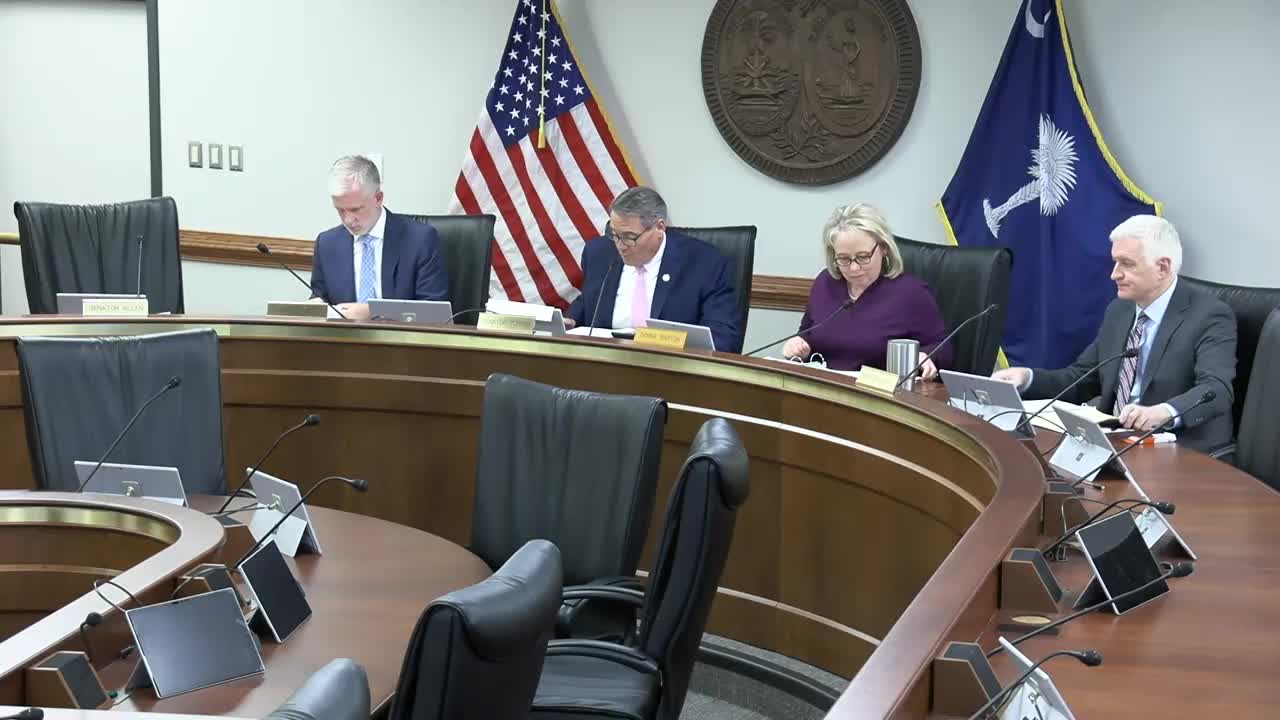Senate Education Subcommittee amends H.3196 to clarify teacher contracts, adds penalties and exemptions
Get AI-powered insights, summaries, and transcripts
Subscribe
Summary
The Senate Education Subcommittee approved an amendment to H.3196, the Educator Assistance Act, clarifying how school districts must notify teachers about contracts and pay-category decisions, carving limited exemptions for existing leave-bank policies, and creating a new penalty for districts that fail to provide required notice.
The Senate Education Subcommittee approved an amendment to H.3196, the Educator Assistance Act, clarifying how school districts must notify teachers about contracts and pay-category decisions, carving limited exemptions for existing leave-bank policies, and creating a new penalty for districts that fail to provide required notice.
Committee members adopted the amendment by voice vote after hearing public comment and staff explanation. ‘‘Our members are saying that they would love to see a contract with a little more meat,’’ Mary Rita Watson of the South Carolina Education Association told the subcommittee, asking that years of service and level of education be shown on teacher contracts to reduce confusion over pay placement and retirement credit.
The amendment, drafted by committee staffer Miss Barton and presented at the meeting, makes several specific changes to the bill. It adds an exemption for districts that, before the bill’s effective date, have implemented leave-bank policies that do not cap accrued leave. The draft also reworks the statutory language on annual contract notification to resolve conflicting duties between boards of trustees and superintendents and proposes a financial penalty if a board fails to provide timely written notice to a teacher. Miss Barton said the penalty figure was based on prior RFA calculations of average state-funded teacher compensation and was rounded to $100,000 per occurrence.
The draft replaces a requirement that a board provide written notice of contract decisions ‘‘before May 1’’ with clarified language assigning the notification duty through the superintendent and adding enforcement language by the Department of Education. It also requires that, upon request, a district provide a teacher the factors used to determine the teacher’s pay category on the salary schedule.
On teacher reassignments, the amendment requires at least five days’ written notice to the affected teacher unless the superintendent demonstrates that advance notice is impossible because of a critical need or the teacher requested the reassignment; the board of trustees must be notified in writing of all reassignments.
The amendment renames one disciplinary category from ‘‘unprofessional conduct’’ to ‘‘breach of contract’’ for cases involving employment with another board without consent, and it clarifies how breach-of-contract cases interact with existing revocation and suspension code sections (referenced in the discussion as section 59 25 1 50 and section 59 25 1 60). The language distinguishes those contract breaches from more serious misconduct (for example, drug use in a classroom) that may still be handled under other provisions.
The committee also adjusted provisions for the retired educator certificate: restoring language that a retired educator must not hold a suspended or voluntarily surrendered South Carolina certificate to qualify for a lifetime retired certificate, and requiring retired educators who wish to remain active to file written notification every five years, with Department of Education guidelines to set forms and timelines.
During debate a senator from York raised the idea of adding an exception if a teacher establishes a bona fide, noncontiguous change of permanent residence, arguing that family moves should not be unduly punished; Miss Barton said she would draft such an exception and the subcommittee allowed latitude to insert that language before full-board consideration.
A motion to adopt the amendment was made, seconded and approved by voice vote; the transcript also records that Senator Allen’s proxy vote was recorded as ‘‘aye.’’ The subcommittee then moved the amended bill for a favorable report by voice vote. The meeting adjourned following that action.
